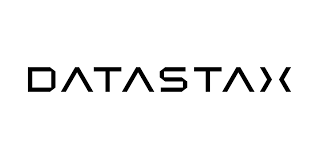RAGStack Greatly Simplifies the Process of Implementing RAG by Providing a Streamlined, Tested, and Efficient Set of Tools and Techniques for Building with LLMs
DataStax, the company that powers generative AI applications with real-time, scalable data, today announced the launch of RAGStack, an innovative, out-of-the-box RAG solution designed to simplify implementation of retrieval augmented generation (RAG) applications built with LangChain. RAGStack reduces the complexity and overwhelming choices that developers face when implementing RAG for their generative AI applications with a streamlined, tested, and efficient set of tools and techniques for building with LLMs.
As many companies implement retrieval augmented generation (RAG) – the process of providing context from outside data sources to deliver more accurate LLM query responses –
into their generative AI applications, they’re left sifting through complex and overwhelming technology choices across open source orchestration frameworks, vector databases, LLMs, and more. Currently, companies often need to fork and modify these open source projects for their needs. Enterprises are wanting an off the shelf commercial solution that is supported.
With RAGStack, companies benefit from a preselected set of the best open-source software for implementing generative AI applications, providing developers with a ready-made solution for RAG that leverages the LangChain ecosystem including LangServe, LangChain Templates and LangSmith, along with Apache Cassandra® and the DataStax Astra DB vector database. This removes the hassle of having to assemble a bespoke solution and provides developers with a simplified, comprehensive generative AI stack.
“Every company building with generative AI right now is looking for answers about the most effective way to implement RAG within their applications,” said Harrison Chase, CEO, LangChain. “DataStax has recognized a pain point in the market and is working to remedy that problem with the release of RAGStack. Using top-choice technologies, like LangChain and Astra DB among others, Datastax is providing developers with a tested, reliable solution made to simplify working with LLMs.”
RAG combines the strengths of both retrieval-based and generative AI methods for natural language understanding and generation, enabling real-time, contextually relevant responses that underpin much of the innovation happening with this technology today.
With specifically curated software components, abstractions to improve developer productivity and system performance, enhancements that improve existing vector search techniques, and compatibility with most generative AI data components, RAGStack provides overall improvements to the performance, scalability, and cost of implementing RAG in generative AI applications.
“At PhysicsWallah, we’re dedicated to delivering high-quality and affordable education. We built a generative AI-driven chatbot powered by the Astra DB vector database and LangChain to be a one-stop solution for every student’s learning needs,” said Sandeep Penmetsa, head of data science and engineering , PhysicsWallah. “We employ Astra DB’s semantic search for advanced support queries, enriching our students’ learning experience, and RAGStack facilitates seamless deployment of RAG-based applications.”
“DataStax technology is deeply integrated into our generative AI infrastructure. We’ve built our solution with Astra DB and customized open source software like LangChain – this is what we have in production today,” said Tisson Mathew, CEO, Skypoint. “With RAGStack, we’ll be able to reduce the pain of maintaining customized open source software , helping to deliver a more simplified and streamlined healthcare AI solution for our customers.”
“Out of the box RAG solutions are in high demand because implementing RAG can be complex and overwhelming due to the multitude of choices in orchestration frameworks, vector databases, and LLMs,” said Davor Bonaci, CTO and executive vice president, DataStax. “It’s a crowded arena with few trusted, field-proven options, where demand is high, but supply is relatively low. RAGStack helps to solve this problem and marks a significant step forward in our commitment to providing advanced, user-friendly AI solutions to our customers.”


